Containerized Deployment (Docker)¶
Goal: one-click up/down; unified network & configs; reproduce a full “Gateway + Services + Middleware” runtime locally.
1. Runtime Overview¶
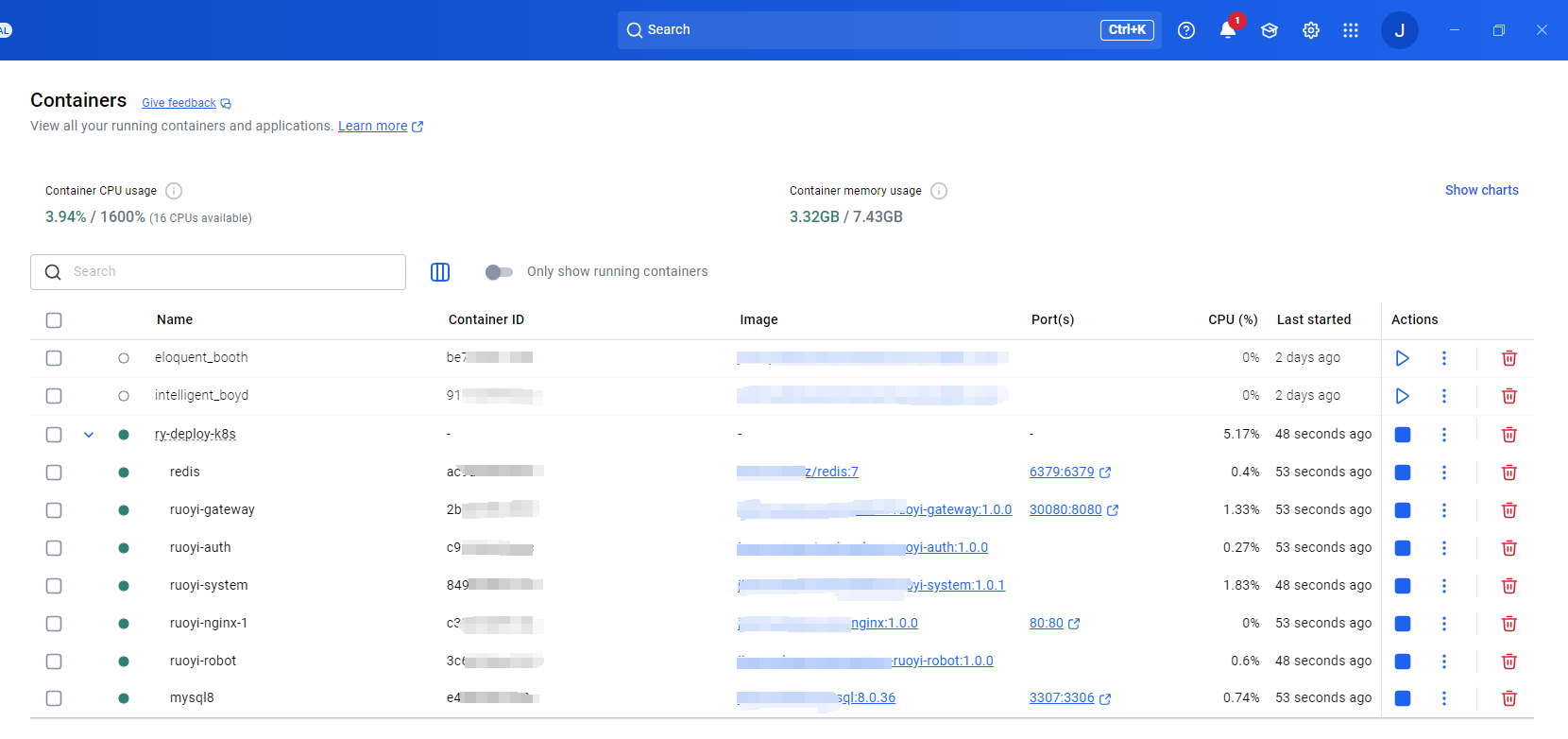
- Status: CPU / memory usage, container health, and port mappings at a glance.
- Services:
mysql,redis,nacos,ruoyi-gateway,ruoyi-system,ruoyi-robot, … - Operations: Start/Stop/Restart per container or in batches — convenient for joint debugging and demos.
2. Directory Layout & Compose¶
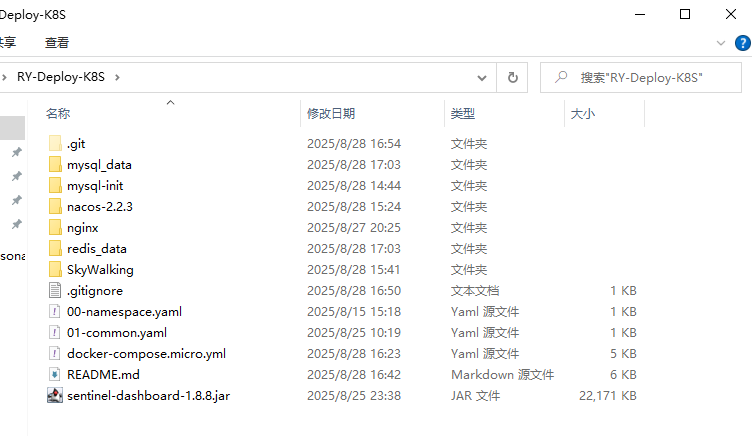
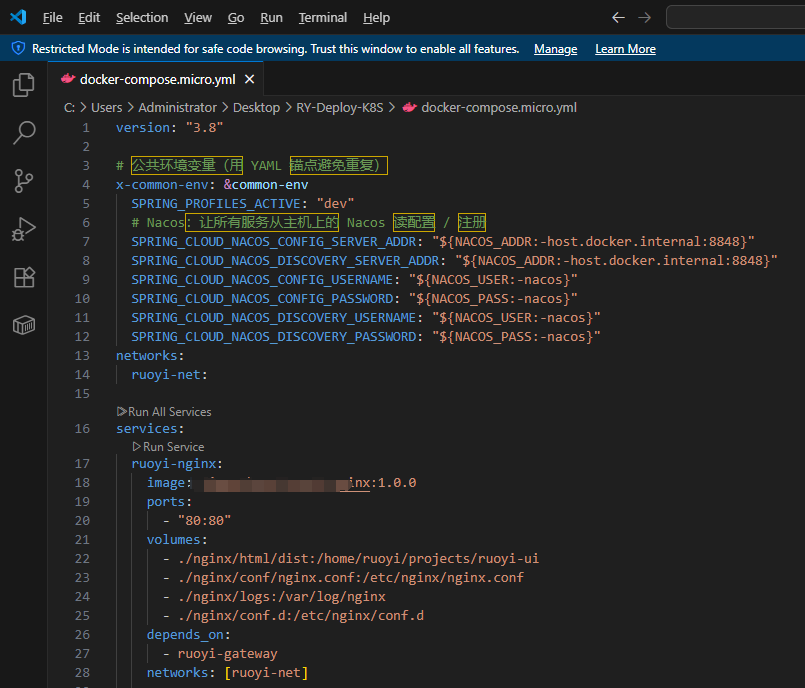
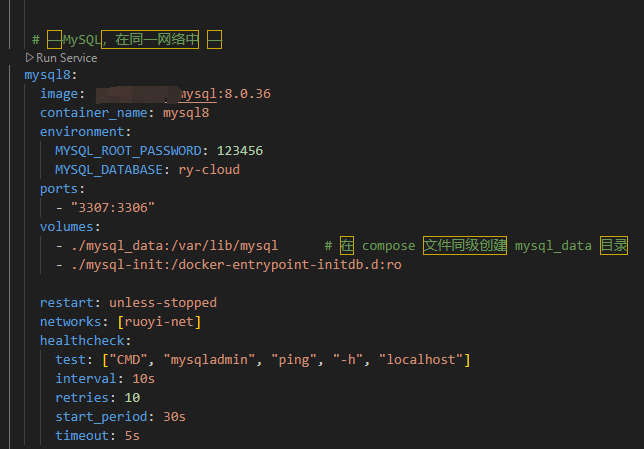
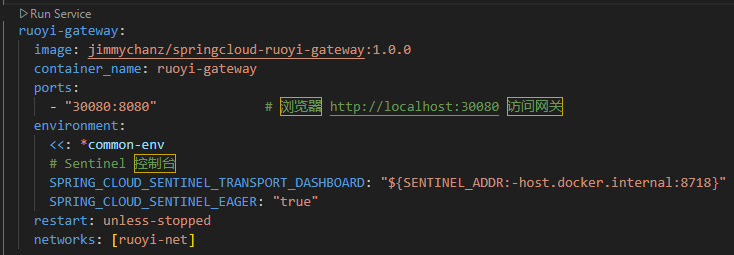
Directory structure (example)
- docker-compose.micro.yml: one-click bring-up for gateway / services / middleware
- nacos_*, mysql_*, redis_data/: persistence & init scripts
- SkyWalking/: observability (optional)
- 01-common.yaml: common env vars (ports, DB password, etc.)
Compose key points (conventions for easy reuse)
- Unified network: networks: [ruoyi-net], intra-container communication by service name
- Health checks: add healthcheck for mysql, nacos, etc., to ensure dependency order
- Startup order: depends_on + condition: service_healthy for reliable sequencing
- Port mappings: e.g., ruoyi-gateway: 30080:8080, mysql: 3307:3306
- Centralized env vars: put common items in x-common-env (or a separate 01-common.yaml)
In one sentence: turn “things humans must remember” into “things written in config,” so your own machine / teammates / demo machines can boot it in seconds.